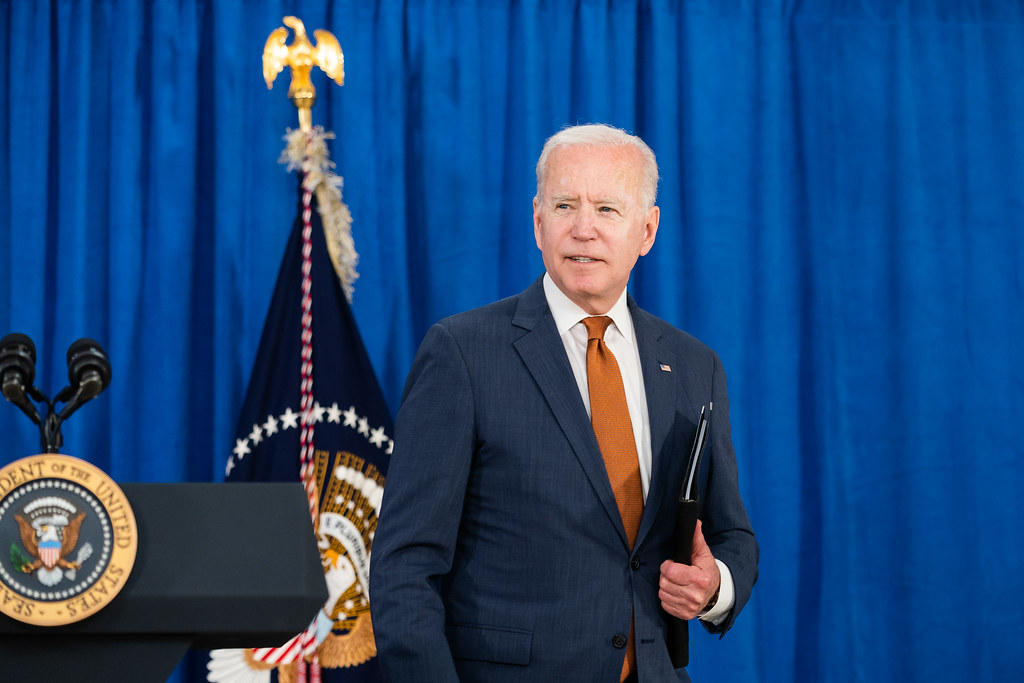The US president is seeking a historic compromise on a bipartisan infrastructure framework, investing in clean energy and $1,200 billion infrastructure to get out of the Washington quagmire and return to power with Republicans.
leveling force. Whether sooner or later Americans will be able to see the largest infrastructure investment in place since the New Deal Franklin Delano Roosevelt, thanks to a historic agreement between Republicans and Democrats would be the wellspring of a $1.2 trillion plan. In truth, the agreement is already in place, even if it is fragile. But now the White House has decided to offer a compromise with Republicans that is the backbone of the plan, pending congressional approval.
And then announcing Joe Biden for Bif, bipartisan infrastructure framework, “the largest long-term investment in our infrastructure in nearly a century of American history,” the president himself explained in a press release White House. “An investment that makes our economy more sustainable, resilient and equitable.”
what is he talking about? The president himself explains it. “The plan makes historic investments in infrastructure, from transportation to water, broadband, and clean energy. We are at a tipping point between democracy and authoritarianism, at this moment in our history we must show the world what American democracy can do for the American people. Democracy can deliver results for workers.” and American farmers and businesses – large and small alike – to compete and win in the 21st century.”
However, there is still much work to be done: grow the economy, create jobs, improve living standards, reduce climate pollution, and ensure more Americans participate fully and equitably in growth. President Biden has pledged to integrate the infrastructure plan with the global agenda enshrined in the American Jobs Plan and the American Families Plan. He will work with Congress to build uniform legislation, and is encouraged that both the House and the Senate are working on budget plans that will. But, as mentioned, democracy requires compromise in order to be so. That’s why Biden asked “Congress to approve bipartisan infrastructure framework and send it to his office as soon as possible.”
Biden knows the stakes are high. L ‘american jobs plan, announced in March, has in fact faced, among other things, a complete environmental decoupling. In fact, the plan aims to promote clean energy generation and electric vehicle manufacturing in the United States, while providing modest support for building renovations. At the heart of this approach is a $2 trillion list of proposals aimed at starting the United States on a zero-emissions path by 2050.
It is no coincidence that the infrastructure proposal includes promoting low-carbon technologies and key goals related to climate change. Biden unveiled a wide range of spending and tax incentive proposals, spanning mostly over eight years and focused on infrastructure, climate change adaptation and social initiatives. But after a phase of initial enthusiasm, the administration had to drop some of the more courageous proposals on environmental transition, moving them into the proposed 3.5 trillion federal budget (for this in the Senate, 50 votes in favor are sufficient, while for the new invoice You risk wall blockage).
With the goal of gathering consensus and broadly engaging politicians and citizens, the White House launched a BIF-related “morning ultimatum”: Every day at 9 a local politician (mayor, governor, state legislator) would explain how implementing the plan would help their land. To get out of the Washington quagmire and remind voters that the renewal of American bridges, roads and intersections can no longer be put off.
Folks, it’s infrastructure hour. Every weekday at 9 a.m. we’ll share a note from leaders across the country calling for a bipartisan infrastructure framework. Here is a thread from Memphis Mayor Jim Strickland on what BIF will mean for his city. https://t.co/ocs9PIOtVH
WhiteHouse 27 July 2021

Communicator. Reader. Hipster-friendly introvert. General zombie specialist. Tv trailblazer

